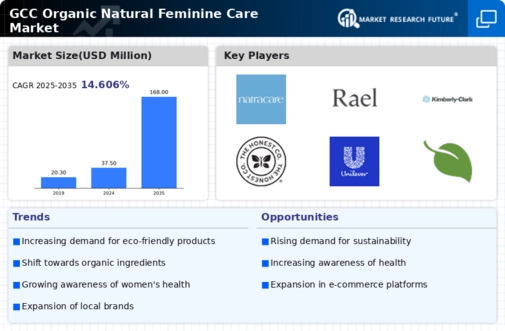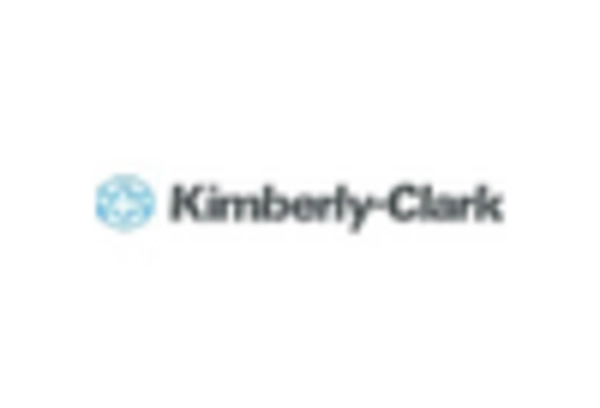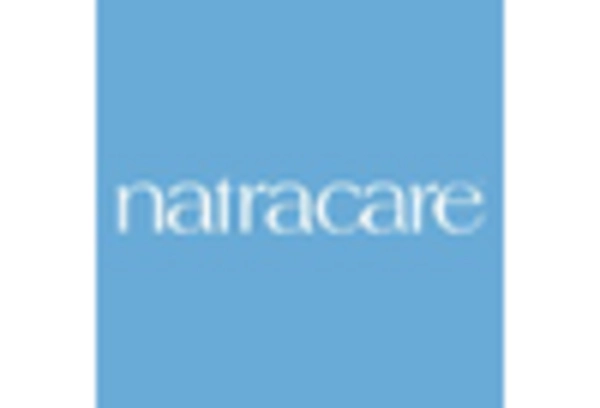Rising Disposable Income
The organic natural-feminine-care market is positively impacted by the rising disposable income among consumers in the GCC. As economic conditions improve, individuals are increasingly willing to invest in premium organic products that promise better health outcomes. This trend is particularly evident among younger demographics, who prioritize quality and sustainability in their purchasing decisions. Market analysis indicates that the organic segment is expected to grow by 10% annually, driven by consumers' willingness to pay a premium for products perceived as healthier and more environmentally friendly. Thus, the organic natural-feminine-care market stands to benefit from this economic shift, as higher disposable incomes facilitate greater access to organic options.
Influence of Social Media
The organic natural-feminine-care market is significantly influenced by social media platforms, where consumers actively seek recommendations and reviews. Influencers and health advocates play a crucial role in shaping perceptions about feminine care products, often promoting organic options as safer and more effective. This digital engagement has led to a rise in brand visibility and consumer trust, with studies indicating that 70% of consumers are more likely to purchase products endorsed by social media influencers. As a result, brands that effectively leverage social media marketing strategies are likely to thrive in the organic natural-feminine-care market, appealing to a tech-savvy demographic that values authenticity and transparency.
Increased Health Awareness
The organic natural-feminine-care market is experiencing a surge in demand driven by heightened health consciousness among consumers in the GCC. As individuals become more informed about the potential health risks associated with synthetic chemicals in feminine care products, there is a noticeable shift towards organic alternatives. This trend is reflected in a market growth rate of approximately 15% annually, as consumers prioritize products that are free from harmful additives. The increasing availability of organic certifications and transparency in ingredient sourcing further supports this movement. Consequently, brands that emphasize natural ingredients and health benefits are likely to gain a competitive edge in the organic natural-feminine-care market.
Regulatory Support for Organic Products
The organic natural-feminine-care market benefits from increasing regulatory support aimed at promoting organic products within the GCC. Governments are implementing policies that encourage the use of organic ingredients and sustainable practices in the production of feminine care items. This regulatory environment not only fosters consumer confidence but also incentivizes manufacturers to invest in organic formulations. For instance, initiatives that provide financial assistance for organic certification can enhance market entry for new players. As a result, the organic natural-feminine-care market is likely to expand, with a projected growth rate of 12% over the next five years, driven by favorable regulations and consumer demand for safer products.
Cultural Shifts Towards Natural Products
Cultural shifts within the GCC are increasingly favoring natural and organic products, impacting the organic natural-feminine-care market. As traditional practices and beliefs evolve, there is a growing acceptance of organic feminine care solutions that align with modern health and wellness trends. This cultural transformation is reflected in consumer purchasing behavior, with a reported 40% of women in the region expressing a preference for organic options. Brands that resonate with these cultural values and offer products that reflect local preferences are likely to capture a larger market share. Consequently, the organic natural-feminine-care market is poised for growth as cultural acceptance of natural products continues to rise.

















